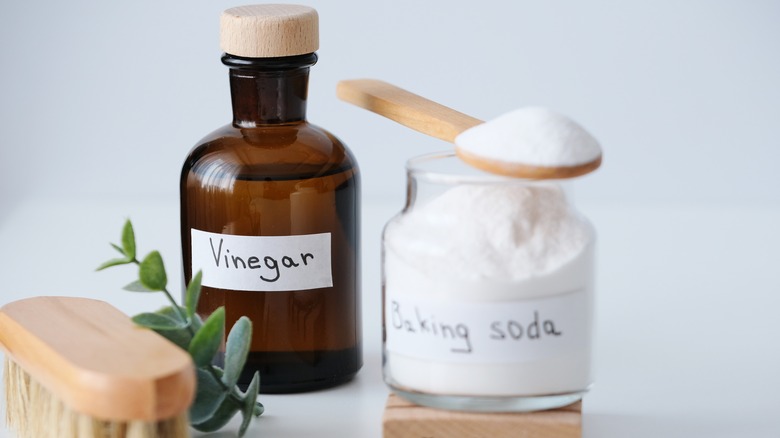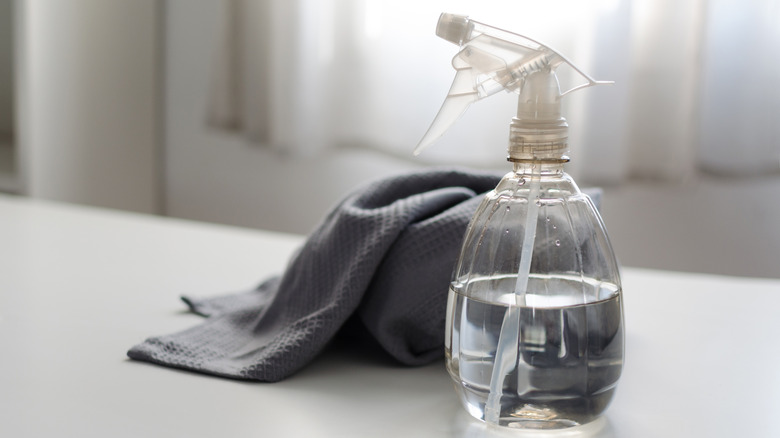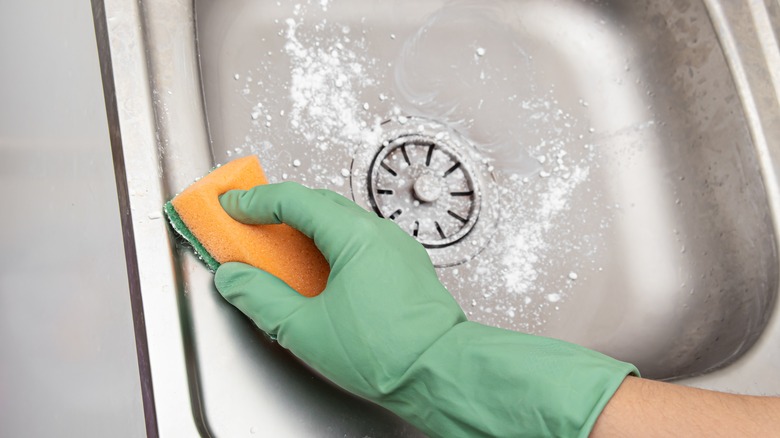Vinegar Vs Baking Soda: What's The Best Natural Cleaner?
While certain cleaning and disinfecting situations require chemical-based commercial products, most everyday cleaning jobs can be tackled with greener solutions that are better for your health and the environment. In fact, there are a variety of natural cleaning ingredients you'll want to have in your home, including white vinegar and baking soda. Each of these two everyday items can prove invaluable, and you might be wondering whether one is better than the other. The truth is that neither vinegar nor baking soda can be crowned as the "best" natural cleaner because they work in completely different ways. Instead, you might have a better green cleaning experience by having both vinegar and baking soda on hand.
White vinegar and baking soda are two kitchen staples that can also be used as natural cleaning agents. While sometimes people mistakenly use these products interchangeably, they work in two different ways. First, white vinegar is an acid that can help neutralize alkaline messes. Baking soda is the exact opposite. This alkaline substance can neutralize acids and can also be used to absorb odors. Also, while baking soda has more abrasive qualities, vinegar may be a more appropriate method of killing germs. For all of these reasons, baking soda can't be considered superior to vinegar for cleaning purposes, and vice versa. Instead, it's important to determine the cleaning situation at hand and which product would be most suitable.
Benefits and limitations of using vinegar for cleaning
Vinegar is an acidic product that can help neutralize alkaline stains and messes. Examples include gum, hard water stains, rust, and mold. It also has natural germ-killing properties, which can make it a good alternative to bleach-containing products. In general, white vinegar is best for glass and tiled surfaces, as well as certain metals such as copper and brass.
With all its benefits, though, vinegar still has some limitations to consider. For one, it may not be the best cleaning agent for caked-on messes that require more scrubbing qualities. It also leaves behind a strong smell, which can be quite unpleasant if you don't dilute the vinegar with water or if you use large quantities at a time. The acidic nature of white vinegar may even be irritating to your lungs if you use it in unventilated areas. Another big downside to cleaning with vinegar is that it is technically not a disinfectant. As a final consideration, if you do use vinegar for cleaning, make sure it's white vinegar only. Other types of vinegar, such as apple cider vinegar, may stain surfaces.
The pros and cons of using baking soda as a natural cleaner
As a mild alkaline substance, baking soda works best for neutralizing acids, such as dirt and grease. There are so many potential uses for this base powder, as well as several baking soda cleaning hacks that are worth trying. It may even help absorb acidic odors in the air or in spaces like your refrigerator. Aside from its air-freshener-like qualities, baking soda also works well as a scrubbing agent. When combined with a little bit of water, baking soda can help create a non-abrasive scrub that may be used to get rid of caked-on messes from a variety of surfaces without leaving scratches behind. It also works well as an oven cleaner.
Some experts recommend using baking soda as an all-purpose cleaner due to its mild effects and versatility. Still, the substance cannot be considered the "best" overall natural cleaner. Like white vinegar, the alkaline powder has its own caveats to consider. For one, baking soda isn't appropriate for all surfaces, such as windows and glass. Finally, while baking soda doesn't have a strong smell like white vinegar, the powder can be messy without careful application.


